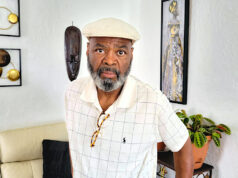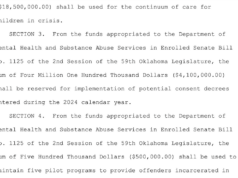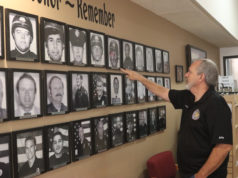
The documentary produced by a French journalist whose Oklahoma County Jail media request became the subject of a controversial voicemail by jail officials has made a partial debut.
Brice Lambert has released a shortened 24-minute version of his film, which will eventually be a feature-length documentary about the female incarceration rate in the United States. Oklahoma is currently ranked No. 1 in female incarceration, with 281 women in prison per 100,000 residents, according to prisonpolicy.org, a national organization that tracks criminal justice policies and reform efforts.
“The idea started when I discovered that women were the fastest growing prison population in the United States, which isn’t something that I knew. But as I started reading about it, I became more interested,” Lambert told NonDoc in February. “I started looking at the rise in figures and, as you know, Oklahoma has been leading that trend for almost 30 years.”
Lambert said a full version of the film will be released later this year and will feature interviews with Oklahomans involved in criminal justice reform efforts. His 24-minute version (embedded above) was first broadcast on ARTE.tv, a French-German public broadcast service.
Among the elements of life in prison highlighted are classes in poetry at Mabel Bassett Correctional Center in McLoud, which is home to many of the state’s female inmates.
“Writing has impacted me by letting me be free when I can’t be,” one woman says during a discussion of what writing means to incarcerated individuals.
The film also follows life for some former inmates after prison as they enter programs designed to provide job training and other support for those trying to get back to life on the outside.
“I worked in upper management in big companies, and I can’t go back,” one woman laments.
Lambert said in February that his nation’s approach to criminal justice, particularly when it concerns women, is vastly different from the United States’ penal system.
“We incarcerate at a very low rate compared to the United States, and a very low rate compared to Oklahoma,” Lambert said earlier this year. “We don’t rely on incarceration to solve problems the same way the United States does. We don’t have the length of sentences for what we would consider minor, nonviolent crimes. It was very shocking to us for such small crimes to have such long sentences.”
(Correction: This article was updated Friday, May 6, to reflect that Brice Lambert visited Mabel Bassett Correctional Center.)
Related:
‘COVID is our friend’: Jail leader Greg Williams recorded praising pandemic




















